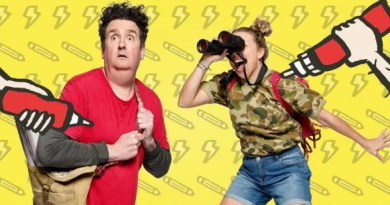New York City to shut down Broadway over concerns of coronavirus spread
With mounting concerns, from actors and audiences about the spread of COVID-19, New York City Governor Andrew M Cuomo has ordered an ending to all gatherings of more than 500 people. Citing concerns over public health risks, from the recently confirmed WHO pandemic announcement, Thursday’s order will force an unprecedented closure of the heart of North America’s theatre district. Cuomo has confirmed that the shutdown will be in force until April 12, causing mounting disruption to many artists and the international economy.
In a statement released by the Broadway League, the immediate suspension of all Broadway shows was ordered “under the direction of Governor Andrew Cuomo.”
Broadway shows in New York City will suspend all performances immediately in support of the health and well-being of the theatregoing public, as well as those who work in the theatre industry. Performances will commence the week of April 13, 2020.
Our top priority has been and will continue to be the health and well-being of Broadway theatregoers and the thousands of people who work in the theatre industry every day, including actors, musicians, stagehands, ushers, and many other dedicated professionals,” said Charlotte St. Martin, President of the Broadway League. “Broadway has the power to inspire, enrich and entertain, and together we are committed to making that vital spirit a reality. Once our stages are lit again, we will welcome fans back with open arms so that they can continue to experience the joy, heart, and goodwill that our shows so passionately express every night.
Telecharge has confirmed that they will be refunding tickets that have already been purchased for any performance between March 12 and April 12.
The economic knock on effect from closing the Broadway will have significant financial repercussions across numerous industries affecting the financial viability of new productions and trickle down to the day to day living of performers and production crew. The New York Post is reporting that longtime running show ‘The Phantom Of The Opera’ may close down for good, however sources close to Andrew Lloyd Webber are saying he is determined to keep it open.
Cuomo’s office tweeted, “We are taking new actions to reduce the density of people across the state. Starting Friday at 5pm, gatherings with 500 people or more will not be permitted in NYS. Additionally, for facilities with an occupancy of 500 or fewer, we are reducing the legal capacity by 50%.”
Broadway theatres have, by definition, a minimum seating capacity of 500 (venues with fewer seats are considered Off Broadway, or, colloquially, even Off Off Broadway). Broadway’s smallest theatre is the 583-seat Helen Hayes, where the revival of Richard Greenberg’s Take Me Out starring Patrick J. Adams was set to begin preview April 2. The largest theatre is the 1,926-seat Gershwin, home of the long-running Wicked.
The driving force behind the closure has been the Actor’s Equity union, which advocates the concern’s of it’s members who are fearful of contracting the virus. The New York Philharmonic has also announced immediate closure of all it’s concerts through till March 31st.
The Broadway shutdown has been feared, if not entirely anticipated, by the industry all week, with St. Martin telling reporters on Monday that though she was encouraged by last week’s steady ticket sales, she knew the situation could change.
This morning, New York City mayor Bill de Blasio told CNN that new Broadway guidelines were imminent, though he held out hope that a shutdown could be avoided. “I want to see if we can strike some kind of balance,” he said, adding that the city and industry were “trying to figure out: is there a way to reduce the capacity, reduce the number of people? If we cannot strike that balance, of course, we can go to closure.”
Even before the industry-wide shutdown was announced, the producers of Moulin Rouge! The Musical cancelled today’s matinee and evening performances. Though no reason was given at the time, Deadline has learned that a cast member might have been exposed to Covid-19.
As of Thursday morning, New York City had 62 confirmed cases of coronavirus, including a Broadway usher who recently worked at theatres housing new productions of Who’s Afraid of Virginia Woolf? and, opening tonight, the musical Six.
The shutdown will far exceed any similar measure in modern Broadway history. Theatres were closed for only two days following the 9/11 attacks on New York City. In weekly grosses alone, the dark theatres will likely result in the loss of more than $100 million over the next month, not counting advance sales and the repercussions on related businesses such as hotels, restaurants, bars, transportation and lost wages.
Prior to the shutdown, Broadway theatre owners and producers had taken measures to avoid the closings, amping up venue cleanings, restricting backstage access and reducing stage door interaction between actors and fans. Patrons feeling ill with either cold or flu symptoms were urged to stay home. Producer Scott Rudin slashed ticket prices to $50 through March for whatever seats remained available at his five usually sold-out Broadway productions, a move that was designed to help keep theatres full if coronavirus concerns took a toll on attendance.
The mass closure arrives just as the smash London and Chicago musical Six was set for its opening tonight – critics have been asked to hold their reviews until the show re-opens. Such big-ticket productions with official openings or previews originally planned for the coming weeks include Hangmen, The Minutes, Diana, Plaza Suite, Mrs. Doubtfire, The Lehman Trilogy, Caroline or Change, How I Learned To Drive, American Buffalo, Birthday Candles, Sing Street, Take



